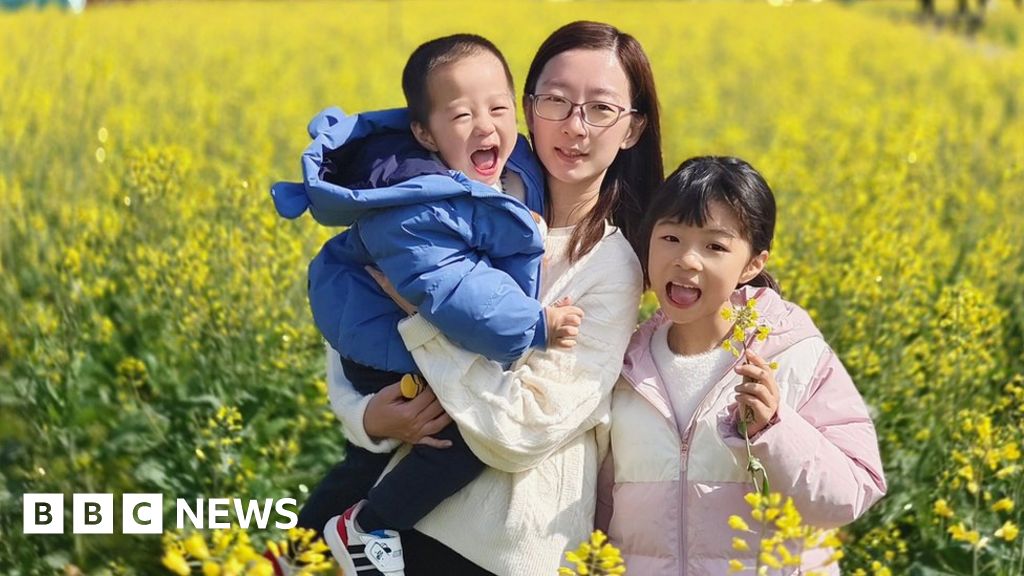During the pandemic, Kathy Zhuo and her husband were forced to take a 50% pay cut. It was a huge blow because she also had to take care of her mother, who was diagnosed with cancer five years ago.
“We barely had money left each year. I felt insecure but didn’t know what to do,” says the 36-year-old mother of two, who lives in Fujian, a city in southern China.
The shock to her family’s finances prompted Ms Zhuo to join the trend of young Chinese people seeking partners – or da zi – with similar interests online. But instead of travelling or exercising together, she has teamed up with people who want to save money.
The shock to her family’s finances prompted Ms Zhuo to join the trend of young Chinese people seeking partners – or da zi – with similar interests online. But instead of travelling or exercising together, she has teamed up with people who want to save money.
The trend shows a “low confidence in the future economy”, says Lu Xi, a public policy professor at the National University of Singapore. Even though the Chinese economy grew faster than expected in the first quarter, it still faces a deepening property crisis, falling foreign investment and mounting local government debts.
Ms Zhuo feels lucky that she is working in the clean energy sector, an expanding industry which is estimated to have contributed around 40% of the country’s economic growth last year. However, she feels driven to “prepare for danger” as many of her friends and family are losing their jobs.
In February this year, Ms Zhuo joined several online saving groups, with most members being women aged between 20 and 40. Every day, they log their budget and expenses. They also help to stop each other from making impulse purchases.
Ms Zhuo says that one member was tempted to buy a luxury bag that cost 5,000 yuan ($690; £560) but after talking to other women in the group settled for a much cheaper, second-hand bag.
During the pandemic, Kathy Zhuo and her husband were forced to take a 50% pay cut. It was a huge blow because she also had to take care of her mother, who was diagnosed with cancer five years ago.
The shock to her family’s finances prompted Ms Zhuo to join the trend of young Chinese people seeking partners – or da zi – with similar interests online. But instead of travelling or exercising together, she has teamed up with people who want to save money.
“We barely had money left each year. I felt insecure but didn’t know what to do,” says the 36-year-old mother of two, who lives in Fujian, a city in southern China.
The trend shows a “low confidence in the future economy”, says Lu Xi, a public policy professor at the National University of Singapore. Even though the Chinese economy grew faster than expected in the first quarter, it still faces a deepening property crisis, falling foreign investment and mounting local government debts.
The shock to her family’s finances prompted Ms Zhuo to join the trend of young Chinese people seeking partners – or da zi – with similar interests online. But instead of travelling or exercising together, she has teamed up with people who want to save money.
The shock to her family’s finances prompted Ms Zhuo to join the trend of young Chinese people seeking partners – or da zi – with similar interests online. But instead of travelling or exercising together, she has teamed up with people who want to save money.
The trend shows a “low confidence in the future economy”, says Lu Xi, a public policy professor at the National University of Singapore. Even though the Chinese economy grew faster than expected in the first quarter, it still faces a deepening property crisis, falling foreign investment and mounting local government debts.
Ms Zhuo feels lucky that she is working in the clean energy sector, an expanding industry which is estimated to have contributed around 40% of the country’s economic growth last year. However, she feels driven to “prepare for danger” as many of her friends and family are losing their jobs.
In February this year, Ms Zhuo joined several online saving groups, with most members being women aged between 20 and 40. Every day, they log their budget and expenses. They also help to stop each other from making impulse purchases.
Ms Zhuo says that one member was tempted to buy a luxury bag that cost 5,000 yuan ($690; £560) but after talking to other women in the group settled for a much cheaper, second-hand bag.
#Chinese #women #partnering #strangers #save #money
Note:- (Not all news on the site expresses the point of view of the site, but we transmit this news automatically and translate it through programmatic technology on the site and not from a human editor. The content is auto-generated from a syndicated feed.))



